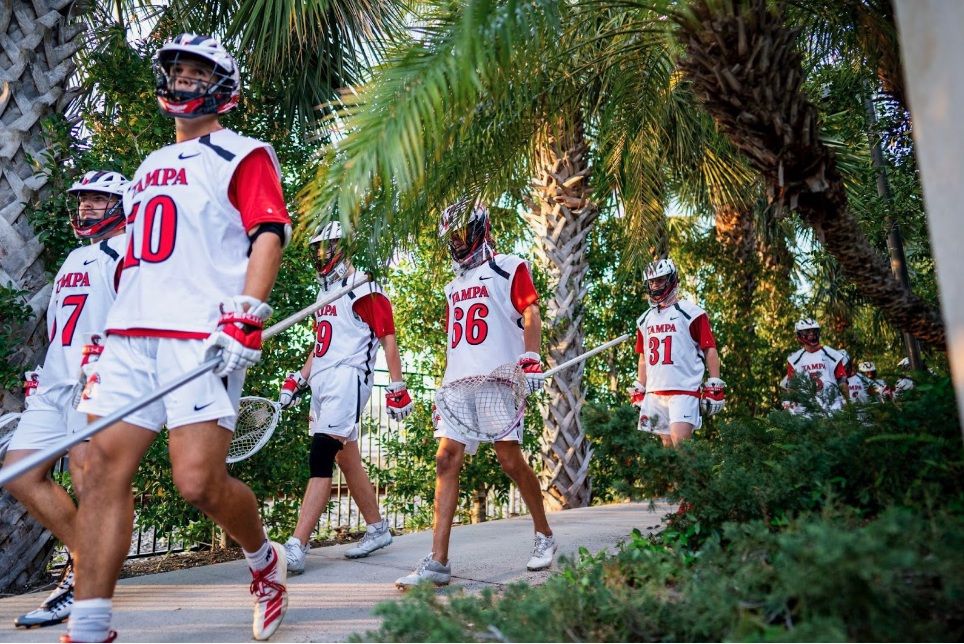By ARDEN IGLEHEART
UT’s nursing program is one of the school’s most valuable assets, and this year, for the fourth year in a row, it boasts a 100 percent passing rate on the nursing exam. The average passage rate for Florida schools is only 76.4 percent. This year, 48 recent graduates took and passed the National Council Licensure Examination for Registered Nurses (NCLEX-RN) exam on their first try.
Carol Botwinski, chair of the department of nursing, cites several reasons for the high passing rate. One is that clinicals are longer, with students completing about 900 hours of clinicals by the time they graduate, and the curriculum allows students to integrate what they learn in the classroom into their experience in clinicals.
Ryan Clabaugh, who graduated from the program last May, will be a nurse for the army beginning in October. He said that his experiences at UT will give him an advantage over his peers in the army. The clinicals are one reason he feels that the program is ahead of others. In his last semester of the program, he spent his time in clinicals one-on-one with a nurse.
“We were just shadowing a nurse that isn’t part of the UT faculty, just people that volunteer to be preceptors,” Clabaugh said. “It’s just you and them, and you view most of the care for the entire semester. I feel that really puts you in a good spot, lets you get comfortable in your day-to-day activities, lets you set up routine [and] lets you get in the thought process for what you’re going to have to do once you start your job.”
Botwinski said another reason for the 100 percent pass rate is that the tests in the program are based on the type of questions they have on the NCLEX, which require a lot of critical thinking. The tests, according to Botwinski, aren’t just exams where students can memorize answers. Some multiple-choice questions will have answers that are all correct, and students will have to pick the “best” answer.
The university’s nursing program is known for its rigor, and Botwinski cites this as a factor to the success of students on the exam. However, some students see this as the university trying to “weed out” nursing students.
Emily Batten, a junior nursing major, believes that weeding out students is part of the reason all students who took the exam passed.
“I think because it’s such an acclaimed nursing program, and the pass rate is so high, that from the beginning people have been weeded out,” Batten said. “I know that people started the program, who got in, but quit within the first couple of weeks because they realized it was going to be too hard.”
Botwinski denies this, and defends the rigor of the program, saying that the university has a responsibility to make sure their graduates are excellent nurses.
“We also have to think about public safety – these students will eventually literally have patient lives in their hands,” Botwinski said. “They will be dealing with life-and-death situations and have to be able to make critical-thinking decisions. They will be handling and administering medications that can have potential side effects or be toxic.”
Clabaugh said that part of the reason the program is so hard is because the university wants to make sure every nurse that emerges from it is up to standard, but says there is definitely a culture of weeding out students unnecessarily.
Clabaugh recalled an incident in which he failed Medical Surgical Nursing, a mandatory course for nursing students. The class required that students get at least a 75 percent average for tests and quizzes to pass, he said. Clabaugh got 74.3 percent.
“In my case, I failed a class, a class that mandated I had to take an entire extra year of college,” Clabaugh said. “Instead of support, and guiding me back on track, it felt like [faculty] treated me differently to discourage me from continuing.”
Johanna Wagner, a junior nursing major, said that it’s necessary to weed students out. Anatomy and physiology is one course known for being a weed-out class, Wagner said, but she defends its level of difficulty.
“If you have issues with the Anatomy and physiology class, you’re going to have issues with dealing with the human body, and every day you’re going to be facing that in the real world,” Wagner said.
She says that the nursing program has given her many opportunities that she wouldn’t be able to have anywhere else.
“In addition to having classes, I participated in delivering a baby today,” Wagner said. “There’s nothing compared to having those experiences and still being a college student. It’s so different from any other program. It’s challenging, but it’s so rewarding.”
Arden Igleheart can be reached at arden.igleheart@theminaretonline.com





Leave a Reply